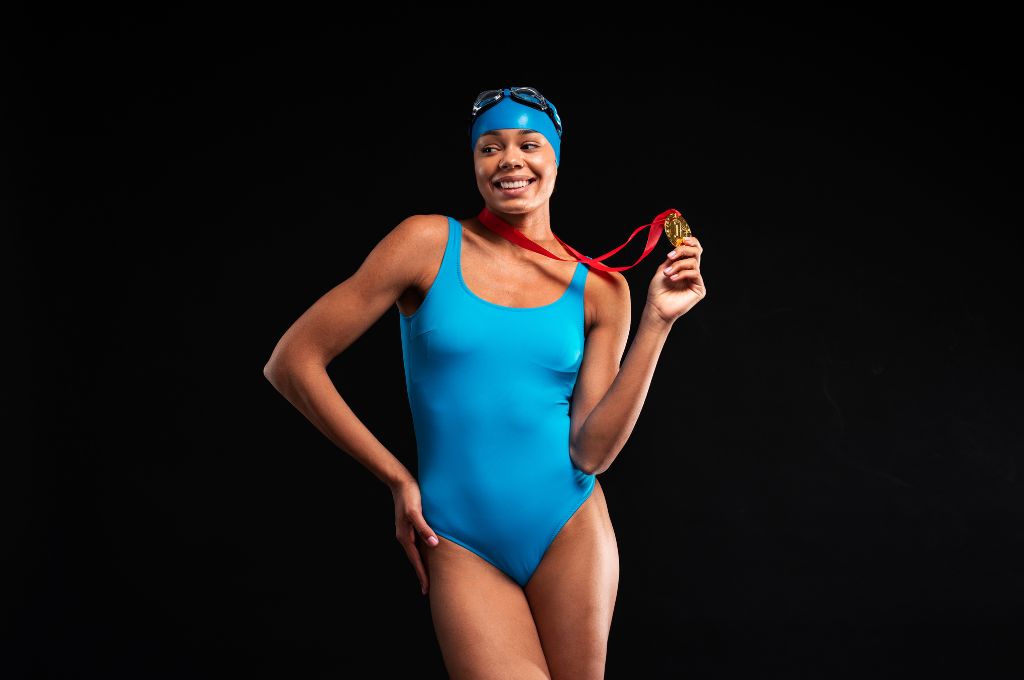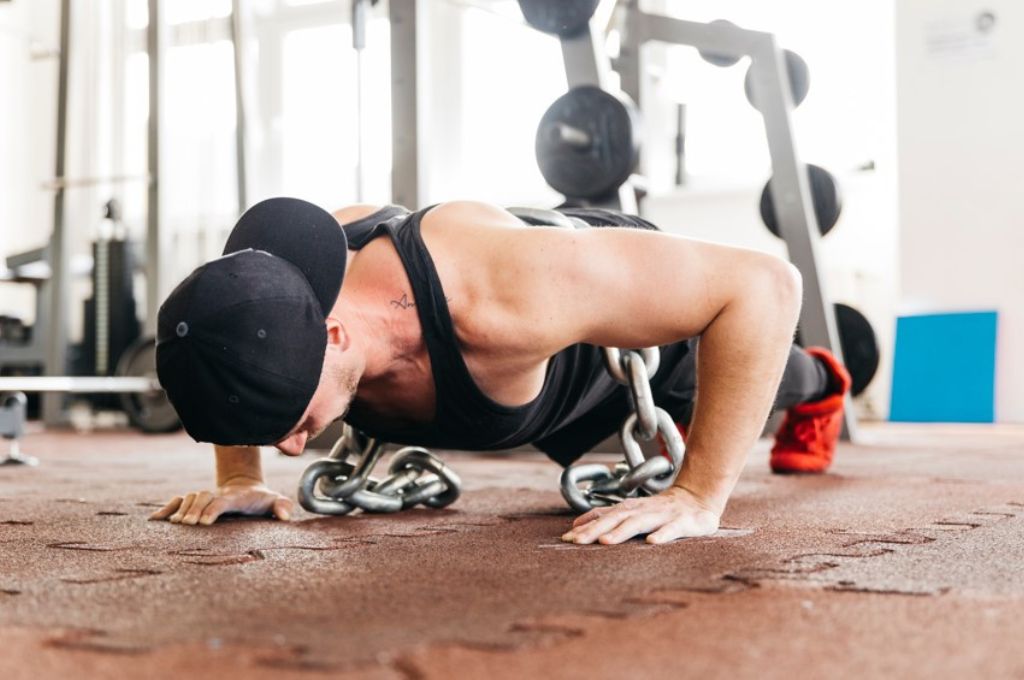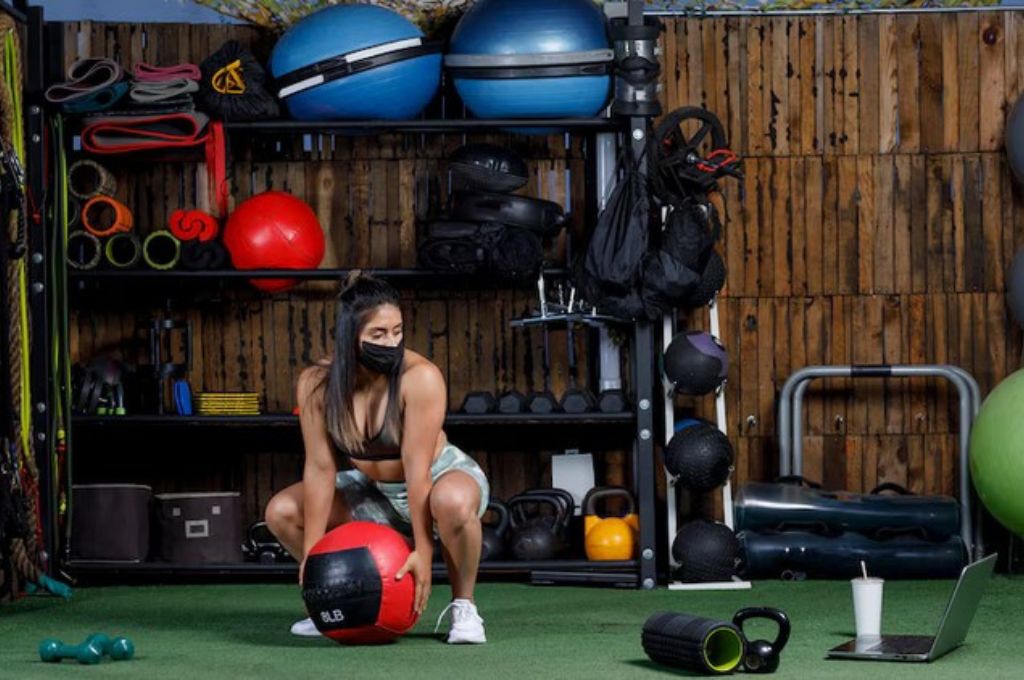Have you ever marveled at the robust and powerful shoulders of swimmers? It’s a common observation that individuals engaged in swimming tend to develop impressively broad shoulders over time. But why is this so? What’s the science behind this striking physical attribute? In this comprehensive guide, we delve deep into the reasons behind the broad shoulders of swimmers, uncovering fascinating insights and shedding light on the physiological mechanisms at play.
The Dominance of Water: A Catalyst for Broad Shoulders
Swimmers, whether recreational or professional, are constantly battling against water resistance. Unlike other forms of physical activity, swimming requires individuals to move their entire body through a dense medium, which poses a significant challenge. This continuous resistance encountered during swimming acts as a catalyst for the development of broad shoulders.
Shoulder Dominance in Swimming Strokes
The various swimming strokes, including freestyle, breaststroke, backstroke, and butterfly, all require extensive engagement of the shoulder muscles. Each stroke places unique demands on the shoulders, contributing to their overall development. For instance, the freestyle stroke predominantly engages the deltoids and latissimus dorsi, while the breaststroke emphasizes the pectoral muscles and deltoids.
The Power of Propulsion: Driving Force Behind Broad Shoulders
One of the primary functions of the shoulder muscles during swimming is propulsion. As swimmers pull their arms through the water, they exert force against the resistance and generate forward momentum. This repetitive motion strengthens the shoulder muscles and contributes to their enlargement over time.
4. Adaptation to Aquatic Environment
The human body possesses remarkable adaptive capabilities, allowing it to adjust to various environmental stimuli. In swimmers, consistent exposure to the aquatic environment triggers physiological adaptations aimed at enhancing performance. Broad shoulders are an evolutionary advantage for swimmers, facilitating efficient movement through water.
Recruitment of Stabilizing Muscles
In addition to the primary shoulder muscles involved in propulsion, swimming recruits many stabilizing muscles to maintain proper form and technique. Muscles such as the trapezius, rhomboids, and serratus anterior play crucial roles in stabilizing the shoulder girdle during swimming movements. The comprehensive engagement of these muscles contributes to the overall development of broad shoulders.
Enhanced Range of Motion
Swimming encompasses a wide range of motion, requiring swimmers to move their arms through various planes. This dynamic movement pattern not only enhances flexibility but also promotes the development of broad shoulders. The constant stretching and contracting of the shoulder muscles during swimming contribute to their robustness and size.
Consistency and Progressive Overload
Like any form of physical training, consistency and progressive overload are vital principles for achieving optimal results. Swimmers who adhere to regular training regimens and gradually increase the intensity of their workouts experience continual improvements in shoulder strength and size. Consistent training and progressive overload are paramount in developing broad shoulders among swimmers.
Genetic Predisposition and Individual Variability
While training plays a significant role in shaping swimmers’ physiques, genetic predisposition and individual variability also come into play. Some individuals may naturally possess broader shoulders due to genetic factors, predisposing them to excel in swimming. However, regardless of genetic predisposition, consistent training and proper technique remain essential for maximizing shoulder development.
Nutritional Considerations
Proper nutrition is integral to supporting muscle growth and recovery, including the development of broad shoulders in swimmers. A balanced diet rich in lean proteins, complex carbohydrates, and essential vitamins and minerals provides the fuel for optimal performance and muscle development. Adequate hydration is also critical for maintaining muscle function and promoting overall health.
Injury Prevention and Rehabilitation
Injuries are an inevitable aspect of athletic pursuits, including swimming. Proper shoulder care, injury prevention strategies, and rehabilitation protocols are essential for maintaining shoulder health and function. Swimmers should incorporate shoulder-specific exercises, stretching routines, and proper warm-up and cool-down techniques to minimize the risk of injury and promote longevity in their athletic endeavors.
Mental Resilience and Focus
Swimming is not just a physical endeavor but also a mental one, requiring unwavering focus, determination, and resilience. Mental strength plays a significant role in pushing through challenging workouts, overcoming obstacles, and staying committed to long-term goals. Swimmers who cultivate mental resilience are better equipped to handle the rigorous demands of training and competition, ultimately contributing to their sports success.
Social and Emotional Benefits
Beyond the physical aspects, swimming offers many social and emotional benefits. The camaraderie forged among teammates, the sense of accomplishment derived from personal achievements, and the opportunity for self-expression and creativity in the water contribute to overall well-being. Swimming fosters a supportive community where individuals can thrive both physically and emotionally.
Competitive Edge in Performance
Broad shoulders not only contribute to swimmers’ aesthetic appeal but also provide a distinct competitive edge in performance. The increased surface area of the shoulders allows swimmers to catch more water with each stroke, resulting in more excellent propulsion and speed through the water. This advantage is particularly evident in sprint events, where fractions of a second can make all the difference between victory and defeat. Swimmers with broad shoulders have a natural advantage in generating power and maintaining momentum, giving them an edge over their competitors.
Postural Benefits and Alignment
Beyond the pool, the development of broad shoulders offers postural benefits and alignment improvements for swimmers. The strengthening of the shoulder muscles helps to stabilize the entire upper body, promoting better posture and alignment. Proper posture enhances swimming performance and reduces the risk of injuries and discomfort associated with poor alignment. Swimmers with well-developed shoulders exhibit confidence and poise both in and out of the water, reflecting the holistic benefits of their training regimen.
Transferable Strength and Functional Fitness

The strength and muscular development achieved through swimming extend beyond the pool, contributing to overall functional fitness and athleticism. Swimmers with broad shoulders possess a solid foundation of strength and endurance that can be applied to various activities and sports. Whether lifting weights, participating in other water sports, or engaging in everyday tasks, the functional strength gained from swimming enhances performance and resilience across different domains. Broad shoulders are a tangible manifestation of this transferable strength, reflecting the versatility and adaptability of swimmers as athletes.
Inspirational Role Models and Icons
The iconic physique of swimmers with broad shoulders has long been a source of inspiration and admiration for aspiring athletes and fitness enthusiasts alike. From Olympic champions to local heroes, swimmers with formidable shoulder muscles embody dedication, discipline, and determination. Their success stories and achievements inspire countless individuals to pursue their fitness goals and strive for excellence in their chosen endeavors. Broad shoulders symbolize physical prowess and the unwavering spirit of perseverance and resilience inherent in the sport of swimming.
Evolutionary Significance and Biological Adaptation
From an evolutionary perspective, the development of broad shoulders among swimmers can be traced back to our aquatic origins as a species. Our ancestors relied on swimming and water-based activities for survival, necessitating adaptations for efficient movement through aquatic environments. Over time, natural selection favored individuals with broader shoulders, as they possessed a distinct advantage in swimming and navigating waterways. Today, the legacy of this evolutionary process lives on in modern-day swimmers, showcasing the enduring biological adaptations that have shaped our physical form.
Cultural Significance and Symbolism
In addition to their practical and physiological significance, broad shoulders hold cultural symbolism and importance in various contexts. In many cultures, wide shoulders are associated with strength, resilience, and leadership as markers of masculinity and vitality. From ancient myths and legends to contemporary media representations, the image of the broad-shouldered hero is deeply ingrained in our collective consciousness. Swimmers with broad shoulders embody these archetypal qualities, embodying the ideals of courage, determination, and heroism both in and out of the water.
The Journey of Self-Discovery and Personal Growth
Pursuing swimming excellence is about physical development, a journey of self-discovery, and personal growth. Swimmers undergo a transformative process that extends beyond the confines of the pool, shaping their character, values, and identity. Through the challenges and triumphs of training and competition, swimmers discover their strengths, confront their weaknesses, and forge bonds that transcend the boundaries of sport. Broad shoulders are a tangible reminder of the resilience, dedication, and passion that define the swimmer’s journey, inspiring others to embark on their path of self-discovery and fulfillment.
Holistic Approach to Health and Wellness
Swimming encompasses a holistic approach to health and wellness, addressing well-being’s physical, mental, and emotional dimensions. Beyond the development of broad shoulders, swimmers reap many benefits that enhance their overall quality of life. The rhythmic movement of swimming promotes relaxation and stress relief, fostering mental clarity and emotional balance. The buoyancy of water reduces stress on joints and muscles, making swimming an ideal form of low-impact exercise for individuals of all ages and fitness levels. Broad shoulders symbolize not only physical strength but also the holistic harmony achieved through the practice of swimming.
Environmental Conservation and Advocacy
Swimmers are not only athletes but also stewards of the environment, advocating for preserving and protecting aquatic ecosystems. The connection between swimmers and water instills a deep appreciation and responsibility for the natural world. Swimmers actively participate in environmental initiatives, such as beach clean-ups, water conservation efforts, and marine wildlife conservation projects. Broad shoulders serve as a symbol of solidarity and commitment to ecological conservation, reflecting the interconnectedness between human health and the health of our planet.
Educational Opportunities and Lifelong Learning
Pursuing swimming excellence opens doors to educational opportunities and lifelong learning experiences for swimmers. Beyond the pool, swimmers have access to scholarships, academic programs, and leadership opportunities that empower them to excel athletically and academically. Swimming teaches valuable life skills such as discipline, time management, teamwork, and resilience, preparing swimmers for success in all aspects of life. Broad shoulders represent physical strength and the intellectual curiosity and thirst for knowledge that drive swimmers to reach new heights of achievement.
Empowerment and Community Engagement
Swimmers play an active role in empowering their communities and positively impacting society. Swimmers give back to their communities through outreach programs, mentorship initiatives, and charitable endeavors and inspire others to pursue their dreams. Broad shoulders symbolize individual strength and the collective power of community and collaboration. Swimmers harness their influence and resources to effect meaningful change, fostering a culture of inclusivity, diversity, and empowerment within the swimming community and beyond.
The Legacy of Broad Shoulders: A Timeless Symbol of Excellence
In conclusion, the broad shoulders of swimmers are more than just a physical attribute; they are a timeless symbol of excellence, resilience, and determination. From the ancient origins of swimming to the modern-day achievements of Olympic champions, broad shoulders embody the enduring spirit of human potential and the limitless possibilities that await those who dare to dream. As we celebrate the legacy of broad shoulders, let us honor the dedication, passion, and indomitable spirit of swimmers worldwide who continue to inspire us with their strength, grace, and unwavering commitment to greatness.
Conclusion: Embracing the Power of Broad Shoulders
In conclusion, swimmers’ broad shoulders are a testament to their dedication, perseverance, and passion for the sport. Through consistent training, proper technique, and a focus on overall health and well-being, swimmers sculpt their bodies into powerful vessels capable of conquering the challenges of the water. Embrace the power of broad shoulders and dive headfirst into the exhilarating world of swimming.




